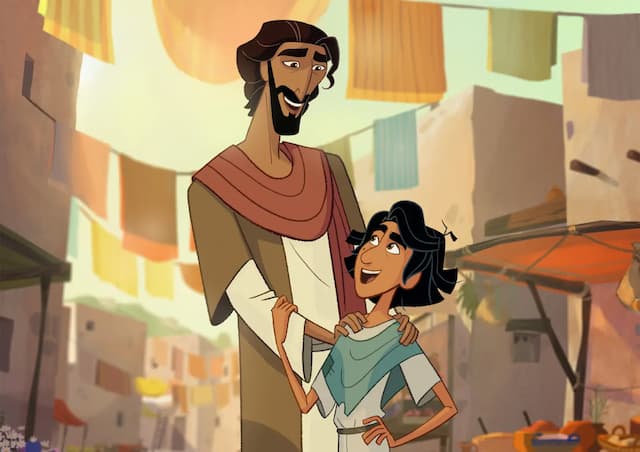The Power of Words: Ark
Who would have thought that I’d learn more about Hebrew in the Tanakh (Old Testament) at work than I do in everyday life here in Israel? It all began when I started working at Rambam Health Care Campus in Israel.
During my interview I had learned that the hospital was undergoing a huge expansion and construction project—their first major expansion since the 1950s. The impact for myself, and all the employees, was that no one ever knew where the entrance would be to the hospital on any given day. Some days special pathways would suddenly appear in the afternoon and be gone the next morning.
I had been told that I’d missed the big event—Lake Rambam (p7 of link)! Water had flooded a large part of the construction area for close to a year. Everyone was talking about Rambam’s ark—what ark?
When I found out, I began to see that maybe God really did have a greater purpose for me to work there, than only write and edit English. I became Rambam’s representative to Christians interested in the hospital and its activities. I became the voice behind “Christian Friends of Rambam.”
When we hear the word “ark,” most people think of Noah’s Ark. They picture a ship filled with smelly animals, and 8 people, drifting in flood water for close to a year. It is big, it is safe, and it is dry.
But did you know that the word for “ark” in the Bible is tevah (תֵּבָה)? What is a tevah? Well, I can assure you of one thing: It is not a ship or a boat. A ship is aniyaa (אֲנִיָה); a completely different word and quite different from a tevah.
I’ll give you a clue. Let’s read [biblegateway passage=”Exodus 2:3″].
When she could hide him no longer, she took for him a basket made of bulrushes and daubed it with bitumen and pitch. She put the child in it and placed it among the reeds by the river bank.
The word translated as basket in English, is tevah in Hebrew. Now here is one thing for certain that you and I know—Noah’s Ark was NOT made of bulrushes, and daubed with bitumen and pitch. It was made of gopher wood. There is no way anyone would look at Noah’s ark and say, “Wow, Noah, that’s a cool basket you have there…”
Tevah only appears twice in Hebrew scripture. These two usages, and external texts, make it clear that a tevah was something quite specific. It was designed to protect and keep extremely safe whatever was stored within, in particular, it was designed to not allow any water in—it was meant to be unsinkable.
Bitumen is the primary ingredient of asphalt roads; it binds things together. Pitch is used to make things waterproof.
As I studied this words and considered the hospital where I was working, suddenly my understanding of what a tevah is clarified. I was stunned. Rambam really did have an ark!
During the Second Lebanon War the hospital had been under continuous missile fire. More than 60 missiles landed within a ½ mile radius of the hospital. Some of the missiles landed just outside the hospital grounds. Patients and staff were in great danger. After the war, the hospital made the safety of patients and staff their top priority.
Today I have the privilege of helping with tours of the world’s largest fortified underground emergency hospital. Currently, it serves as an underground parking lot, but within 72 hours it can be transformed into a 2,000-bed fully functioning hospital. People worldwide come to see the Sammy Ofer Fortified Underground Emergency Hospital, and I have the privilege of explaining to our Christian groups its importance for the people of Northern Israel.
The underground hospital is Rambam’s ark, prepared in an exceptional way to keep people safe when threatened by the elements (such as Noah and his family), or those seeking to take their lives (such as baby Moses)—and all this within the near proximity of water. Remember I told you about Lake Rambam? It has been drained, and the underground hospital is in its place.
The word ark, tevah, had taken on an important meaning to me in other ways as well. It reminds me of God’s protection and provision. I think about how God guided Noah in the full construction of the ark. Unlike the Titanic, Noah’s Tevah did not sink.
I am reminded of Moses parents who, in faith, prepared a small tevah to protect their child. That tevah was no simple basket. It must have taken an act of faith just to gather the materials to make it!
I think of Jesus, my tevah who keeps me safe in the storms of life. Like Noah, He calls to us and explains to us how we can be safe in Him. Like Moses’ parents, we must act in faith and trust Him to keep us safe. With these thoughts, I’ll close with the words of a childhood song my parents and I used to sing when we drove:
Safe am I, safe am I
In the hollow of His hand.
Sheltered o’er, sheltered o’er
With His love forevermore.
No ill can harm me, no foe alarm me
For He keeps both day and night.
Safe am I, safe am I,
In the hollow of His hand.






